10 start with C start with C
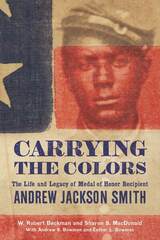
An Escaped Slave who Fought for the Union and Whose Wartime Heroism was Finally Recognized with the Nation's Highest Honor for Military Valor
In 1862, Andrew “Andy” Jackson Smith, son of a white landowner and enslaved woman, escaped to Union troops operating in Kentucky, made his way to the North, and volunteered for the 55th Massachusetts, one of the newly formed African American regiments. The regiment was deployed to South Carolina, and during a desperate assault on a Confederate battery, the color bearer was killed. Before the flag was lost, Smith quickly retrieved it and under heavy fire held the colors steady while the decimated regiment withdrew. The regiment’s commanding officer promoted Smith to color sergeant and wrote him a commendation for both saving the regimental flag and bravery under fire. Honorably discharged, Smith returned to Kentucky, where over the course of the next forty years he invested in land. In the early twentieth century, Burt G. Wilder, medical officer of the 55th, contacted Smith about his experiences for a book he was writing. During their correspondence, Wilder realized Smith was eligible for the nation’s highest award. In 1916, Wilder applied to the army, but his request for Smith’s medal was denied due to the “absence of records.” At Smith’s death in 1932, his daughter Caruth received a box of his papers revealing the extent of her father’s heroism. Her nephew took up the cause and through long and painstaking research located the lost records. With the help of historians, local politicians, and others, Andrew Jackson Smith received his long overdue Medal of Honor in 2001.
In Carrying the Colors: The Life and Legacy of Medal of Honor Recipient Andrew Jackson Smith, the riveting journey from slavery to a White House ceremony is revealed, with the indomitable spirit of Smith—slave, soldier, landowner, father—mirrored by the dogged pursuit of his grandson and his allies in the quest to discover the truth about an American who dedicated his life to the service of his community and country.

Once a powerful figure who reversed the disintegration of China and steered the country to Allied victory in World War II, Chiang Kai-shek fled into exile following his 1949 defeat in the Chinese civil war. As attention pivoted to Mao Zedong’s communist experiment, Chiang was relegated to the dustbin of history.
In Chiang Kai-shek’s Politics of Shame, Grace C. Huang reconsiders Chiang’s leadership and legacy by drawing on an extraordinary and uncensored collection of his diaries, telegrams, and speeches stitched together by his secretaries. She paints a new, intriguing portrait of this twentieth-century leader who advanced a Confucian politics of shame to confront Japanese incursion into China and urge unity among his people. In also comparing Chiang’s response to imperialism to those of Mao, Yuan Shikai, and Mahatma Gandhi, Huang widens the implications of her findings to explore alternatives to Western expressions of nationalism and modernity and reveal how leaders of vulnerable states can use potent cultural tools to inspire their country and contribute to an enduring national identity.

Once a powerful figure who reversed the disintegration of China and steered the country to Allied victory in World War II, Chiang Kai-shek fled into exile following his 1949 defeat in the Chinese civil war. As attention pivoted to Mao Zedong’s communist experiment, Chiang was relegated to the dustbin of history.
In Chiang Kai-shek’s Politics of Shame, Grace C. Huang reconsiders Chiang’s leadership and legacy by drawing on an extraordinary and uncensored collection of his diaries, telegrams, and speeches stitched together by his secretaries. She paints a new, intriguing portrait of this twentieth-century leader who advanced a Confucian politics of shame to confront Japanese incursion into China and urge unity among his people. In also comparing Chiang’s response to imperialism to those of Mao, Yuan Shikai, and Mahatma Gandhi, Huang widens the implications of her findings to explore alternatives to Western expressions of nationalism and modernity and reveal how leaders of vulnerable states can use potent cultural tools to inspire their country and contribute to an enduring national identity.
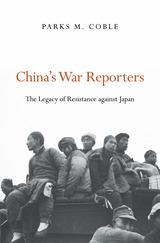
When Japan invaded China in the summer of 1937, many Chinese journalists greeted the news with euphoria. For years, the Chinese press had urged Chiang Kai-shek to resist Tokyo’s aggressive overtures. This was the war they wanted, convinced that their countrymen would triumph.
Parks Coble recaptures the experiences of China’s war correspondents during the Sino–Japanese War of 1937–1945. He delves into the wartime writing of reporters connected with the National Salvation Movement—journalists such as Fan Changjiang, Jin Zhonghua, and Zou Taofen—who believed their mission was to inspire the masses through patriotic reporting. As the Japanese army moved from one stunning victory to the next, forcing Chiang’s government to retreat to the interior, newspaper reports often masked the extent of China’s defeats. Atrocities such as the Rape of Nanjing were played down in the press for fear of undercutting national morale.
By 1941, as political cohesion in China melted away, Chiang cracked down on leftist intellectuals, including journalists, many of whom fled to the Communist-held areas of the north. When the People’s Republic was established in 1949, some of these journalists were elevated to prominent positions. But in a bitter twist, all mention of their wartime writings disappeared. Mao Zedong emphasized the heroism of his own Communist Revolution, not the war effort led by his archrival Chiang. Denounced as enemies during the Cultural Revolution, once-prominent wartime journalists, including Fan, committed suicide. Only with the revival of Chinese nationalism in the reform era has their legacy been resurrected.
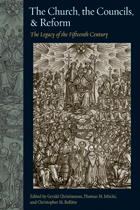
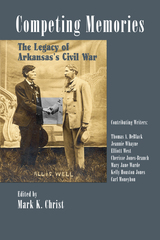
Between 2011 and 2015, Arkansas commemorated the 150th anniversary of the American Civil War with re-enactments, lectures, placement of historical markers, and a wide variety of other events that were collectively attended by more than 375,000 people. While the sesquicentennial commemoration highlighted the Civil War events that occurred in the state and honored the people who experienced the war in Arkansas, the question of the war’s significance to modern Arkansas remained.
Competing Memories: The Legacy of Arkansas’s Civil War collects the proceedings of the final seminar sponsored by the Arkansas Civil War Sesquicentennial Commission, which sought to define the lasting impact that the nation’s deadliest conflict had on the state by bringing together some of the state’s leading historians.
In these essays, Thomas A. DeBlack explores the post-war lives of both Union and Confederate soldiers who played prominent roles in Civil War Arkansas. Cherisse Jones-Branch delves into the lives of black Arkansans during the war and Reconstruction. Jeannie Whayne discusses the many ways the Civil War affected the state’s economic development, while Kelly Houston Jones investigates the Civil War’s impact on Arkansas women. Mary Jane Warde examines the devastating effects of the Civil War on Native Americans in Arkansas and the Indian Territory. Elliott West scrutinizes Civil War Arkansas from a continental perspective, and Carl Moneyhon considers the evolution of how we remember the Civil War.
Together, the essays in Competing Memories: The Legacy of Arkansas’s Civil War provide a compelling account of how America’s bloodiest war continues to affect Arkansas and its people today.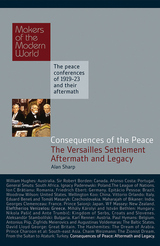

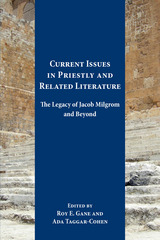
New directions and fresh insight for scholars and students
The single greatest catalyst and contributor to our developing understanding of priestly literature has been Jacob Milgrom (1923-2010), whose seminal articles, provocative hypotheses, and comprehensively probing books vastly expanded and significantly altered scholarship regarding priestly and related literature. Nineteen articles build on Milgrom's work and look to future directions of research. Essays cover a range of topics including the interpretation, composition and literary structure of priestly and holiness texts as well as their relationships to deuteronomic and extra-biblical texts. The book includes a bibliography of Milgrom's work published between 1994 and 2014.
Features:
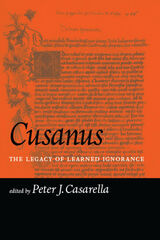
READERS
Browse our collection.
PUBLISHERS
See BiblioVault's publisher services.
STUDENT SERVICES
Files for college accessibility offices.
UChicago Accessibility Resources
home | accessibility | search | about | contact us
BiblioVault ® 2001 - 2024
The University of Chicago Press









